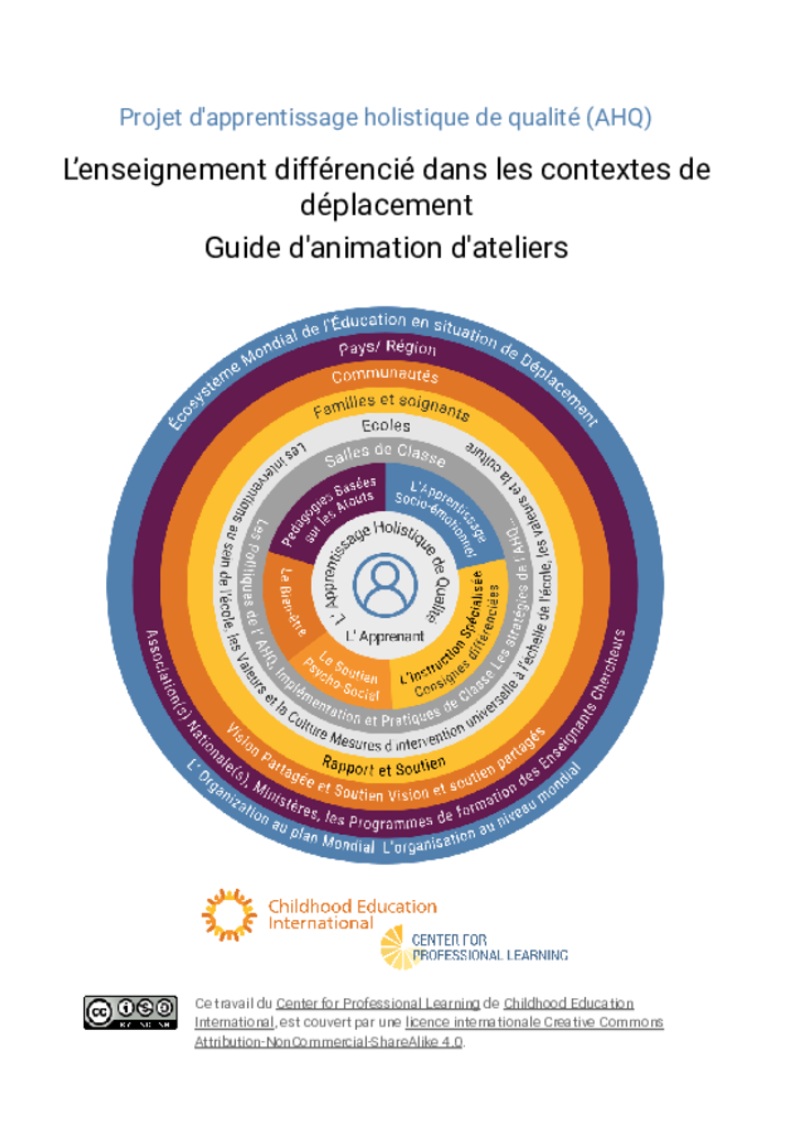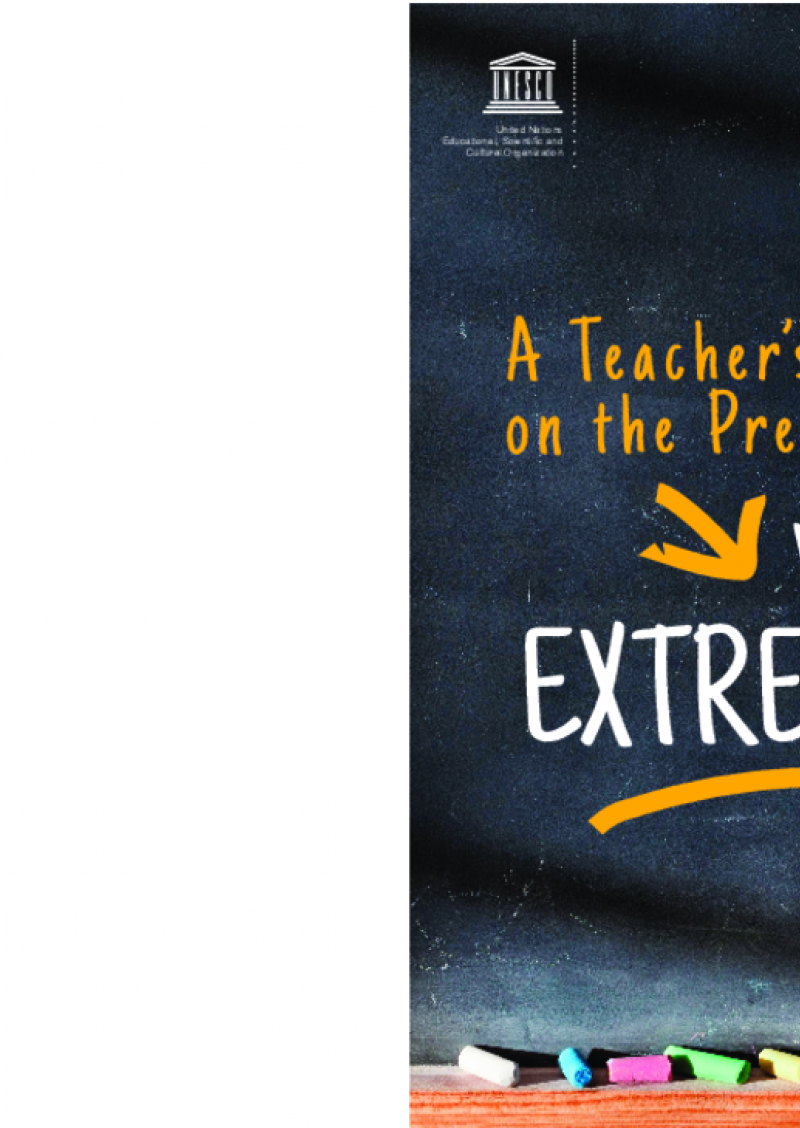Centre de Ressources pour les Enseignants
Affichage de 1 à 7 sur 7
L’enseignement différencié dans les contextes de déplacement. Guide d’animation d’ateliers
Dans ce guide, vous trouverez des stimuli qui vous aideront à explorer le contenu et à l'appliquer au contexte local. Vous y trouverez également des conseils qui aideront les éducateurs à allouer de l'espace et du temps pour l'apprentissage professionnel dans leur vie chargée et souvent stressante. Enfin, nous proposons quelques conseils sur les aspects en ligne et/ou technologiques de cette formation.
Le projet d'apprentissage holistique de qualité (AHQ), dont cet atelier en face-à-face est l'un des éléments, vise à préparer les éducateurs à dispenser des leçons de haute qualité qui soutiennent la formation holistique pour les enfants et les jeunes d'origines diverses (réfugiés, migrants et/ou citoyens) dans les pays d'accueil, les situations de déplacement et les contextes de crise. Nous définissons l'apprentissage holistique de qualité comme celui dont l’objectif est :
- le développement scolaire, cognitif et identitaire,
- l'apprentissage socio-émotionnel, et
- le bien-être mental / psychosocial et physique et qui délivre: des expériences scolaires positives, un sentiment d'appartenance et de sécurité, la croissance et le développement, et des résultats équitables pour tous les apprenants.
Social and emotional learning for schools
This is a dual certifying course that combines social and emotional learning (SEL) for classrooms and SEL for teachers. The objective of the certification is to enhance personal well-being and build the professional capacity of teachers for SEL.
A teacher's guide on the prevention of violent extremism
This is UNESCO’s first teacher’s guide on the prevention of violent extremism through education. It was developed in order to ensure its relevance in different geographical and socio-cultural contexts. Therefore, it can be used as it is or further contextualized, adapted and translated in order to respond to the specific needs of learners.
The guide seeks to:
- provides practical advice on when and how to discuss the issue of
violent extremism and radicalization with learners;
- help teachers create a classroom climate that is inclusive and conducive
to respectful dialogue, open discussion and critical thinking.
Dear Kitty: worksheets for the film Where is Anne Frank?
These worksheets are to be used with the teacher's guide "Dear Kitty: teacher's guide for the film Where is Anne Frank?".
Dear Kitty: teacher's guide for the film Where is Anne Frank?
This guide provides teachers with the necessary tools to highlight historical and current themes from the animated film "Where is Anne Frank".
It includes a preparatory lesson, a lesson to discuss the film and four detailed thematic follow-up lessons. The film and the lessons are accompanied by extensive background information and ready-to-use worksheets with information, questions and assignments.
Recommendations for teaching and learning about the Holocaust
Benefiting from the expertise of delegates from more than 30 member countries, the IHRA Recommendations for Teaching and Learning about the Holocaust are intended to provide a basis for policymakers, practitioners, and educators that will help them:
1. Develop knowledge of the Holocaust, ensuring accuracy in individual understanding and knowledge and raising awareness about the possible consequences of antisemitism;
2. Create engaging teaching environments for learning about the Holocaust;
3. Promote critical and reflective thinking about the Holocaust including the ability to counter Holocaust denial and distortion;
4. Contribute to Human Rights and genocide prevention education
Teachers’ self-efficacy in preventing and intervening in school bullying: a systematic review
This article presents a systematic review of existing literature on the extent of teachers’ self-efficacy in managing bullying and its connection to the likelihood that teachers will intervene in bullying, to their intervention strategies, and the prevention measures they employ, as well as students’ bullying behavior and their experiences of victimization.
The study presents practical implications in relation to teacher initial education and professional development: teachers with higher self-efficacy tend to intervene more often in bullying situations, so it's important that teacher training programs are designed to support teacher's self-efficacy, through the use of appropriate methods, such as the use of role-play to practice specific professional behaviours.





